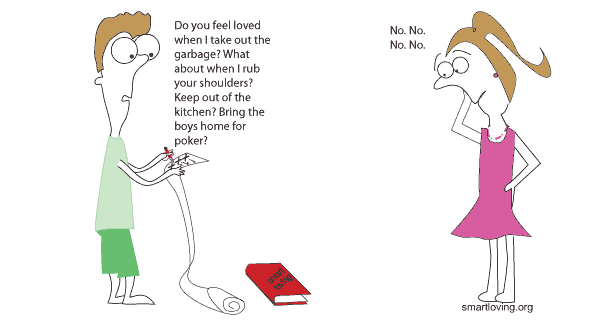Loving Smart
How to Love
Over many years we’ve come to realise that most of our mistakes in love come from the assumption that everyone experiences love the same way. A number of authors have developed frameworks to help us understand the foolishness of this idea.
For example, in ‘The Five Love Languages’ Gary Chapman recognises that each of us has a dominant mode of encountering love – it’s like a native language, one that we intuitively understand deeply. He identifies affirmation, touch, gifts, quality time and service as the five love languages.
Willard Harley in his landmark book ‘His Needs, Her Needs’ identified that the experience of love is connected to the meeting of powerful emotional needs – needs that differ in priority and significance among different people. Instinctively, we tend to love the way we like to be loved.
So if physical affection is important to us, we’ll tend to express love through affection. If affirmation or gift-giving or recreational companionship is a primary love need, then we’ll tend to ‘speak’ our love in those ways. But it’s unlikely that our spouse, children or friends will have the same love needs that we have.
SmartLoving
‘Smart Loving’ is the term we coined to capture the idea that love is most successful and effective when we love according to the love needs of the other. It seems so obvious, yet it’s surprising how often people complain that their spouse misunderstands their gestures of love, that they try really hard to love their spouse but it just doesn’t seem to be enough.
We can be incredibly generous and self-sacrificing towards our spouse, but if our gestures are not meeting his or her love needs, it won’t have the impact we desire. We call this ‘dumb’ loving, and we’re experts at it!
‘Smart Loving’ is about knowing your spouse’s love needs, and loving them the way they like and need to be loved. It’s ‘smart’ because it’s effective. After all, who has the time or energy to love in ways that just don’t work? And it’s genuine ‘loving’ because it’s other-centred; focussed on building up and advancing the good of the other.




